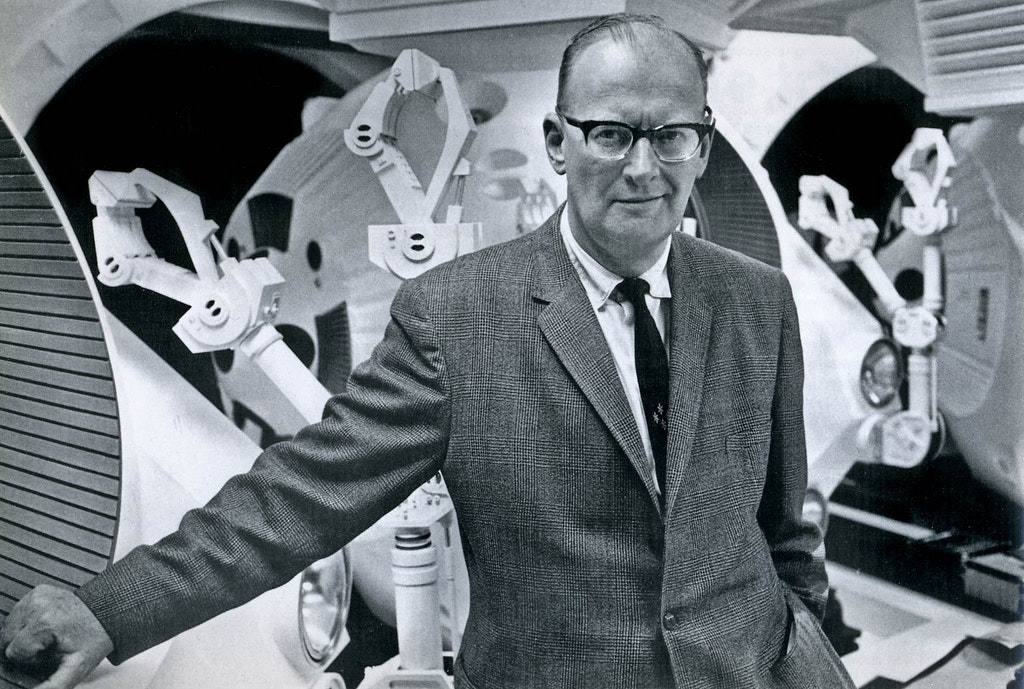
Today I want to share with you a little discovery. Arthur Charles Clarke, born in 1917 in the United Kingdom and died on 19 March 2008 (at the age of 90) in Sri Lanka, was a British science fiction writer, science writer, futurologist, TV presenter, underwater explorer and inventor. In 1945, just after the end of the WWII and 12 years before the first satellite in history was put into orbit, Sputnik 1, Clarke published an article in the Wireless Wold Magazine, a british electronics journal, in which he proposed a completely surrealistic project:
Many may consider the solution proposed in this discussion too farfetched to be taken very seriously. Such an attitude is unreasonable
Actually, he defended, with lots of very simple calculations and arguments, the insane idea that it would be possible to put rocket stations very high in space, and if positioned at a precise height, can offer radio coverage all over the world.
A body in such an orbit […] would revolve with the earth […] and unlike all other heavenly bodies would neither rise nor set.
In today’s English, Clarke is imagining here, probably for the first time in documented history, that one can build an artificial satellite, position it in geosynchronous orbit and thus cover a large regions of the globe.
What makes reading this article funny, completely surreal and at the same time very interesting, is to go through the not-so-insane solutions (or are they?) proposed by one of the most creative minds in the history of mankind trying to solve surrounding technical problems. This goes from the placing in orbit to the choice of frequencies, including a mirror system for power supply and the establishment of an optical inter-satellite link. Today, as a tribute to him, GEO is sometimes called Clarke’s orbit or Clarke’s belt.
Without spoiling you too much, I let you enjoy “EXTRA-TERRESTRIAL RELAYS: Can Rocket Stations Give World-wide Radio Coverage?”
PS: Clarke is the scenarist of the film “2001: A Space Odyssey”, a film that I didn’t get hooked on at all, but that may deserve to be rediscovered in the light of this article.
PPS: Archives of all Wireless Wold Magazine can be found here, a real little treasure of the internet where you can stumble upon various little nuggets!
END OF TRANSMISSION.